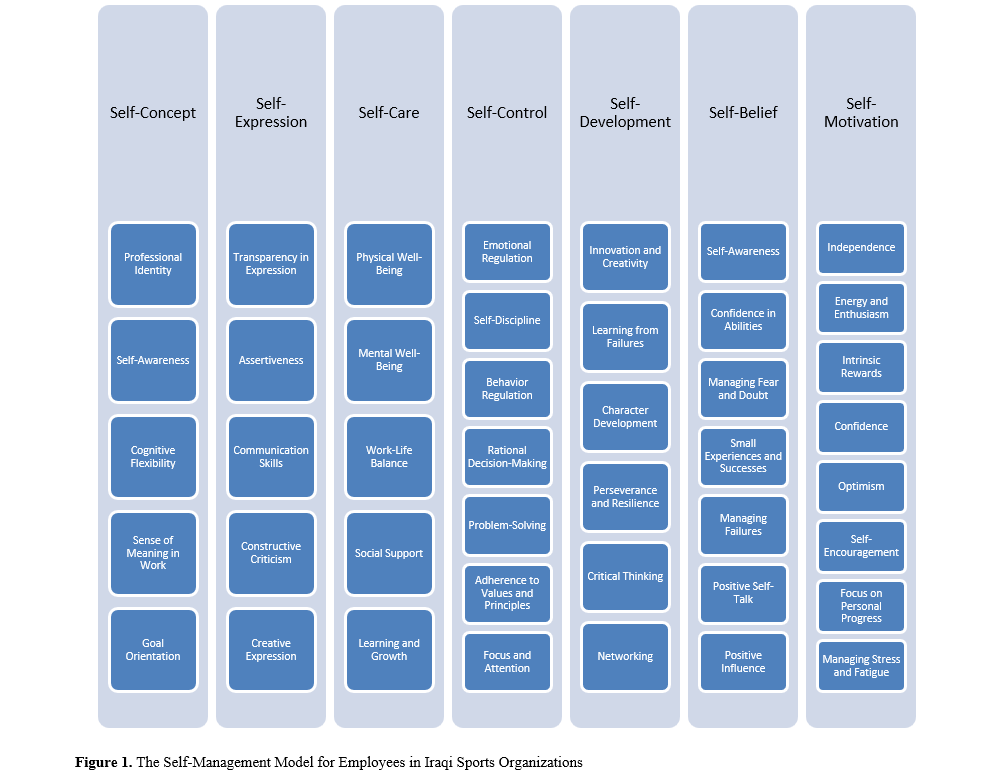Development of the Self-Management Model Of Employees in Iraqi Sports Organizations
Keywords:
Self-management, sports organizations, Iraq, thematic analysisAbstract
The aim of this study is to develop a model of self-management for employees in sports organizations in Iraq. Self-management refers to an individual's ability to independently plan, direct, and monitor their behaviors and activities. This skill helping individuals achieve their goals and perform better. This research is applied in terms of purpose, descriptive-survey in terms of data collection, and qualitative in terms of research typology. Data analysis was performed using thematic analysis strategy. The statistical population of this study consisted of experts from the Ministry of Youth and Sports of Iraq, heads of some sports federations, and university professors in Iraq. The study used purposive sampling, and 16 members of the population were selected using a snowball sampling technique. The results from the analysis of the interviews indicated that the codes extracted from 16 interviews amounted to 315 meaningful sentences, from which 90 primary codes and 43 sub-codes were derived. The final themes extracted were categorized into seven main themes, including self-awareness, self-expression, self-care, self-control, self-development, self-confidence, and self-motivation. This model can serve as an effective strategy for increasing organizational resilience, improving team performance, and achieving long-term goals. Focusing on these components and developing them in employees will pave the way for sustainability and success in sports organizations.

Downloads
Published
Submitted
Revised
Accepted
Issue
Section
License
Copyright (c) 2023 Management Strategies and Engineering Sciences

This work is licensed under a Creative Commons Attribution-NonCommercial 4.0 International License.











